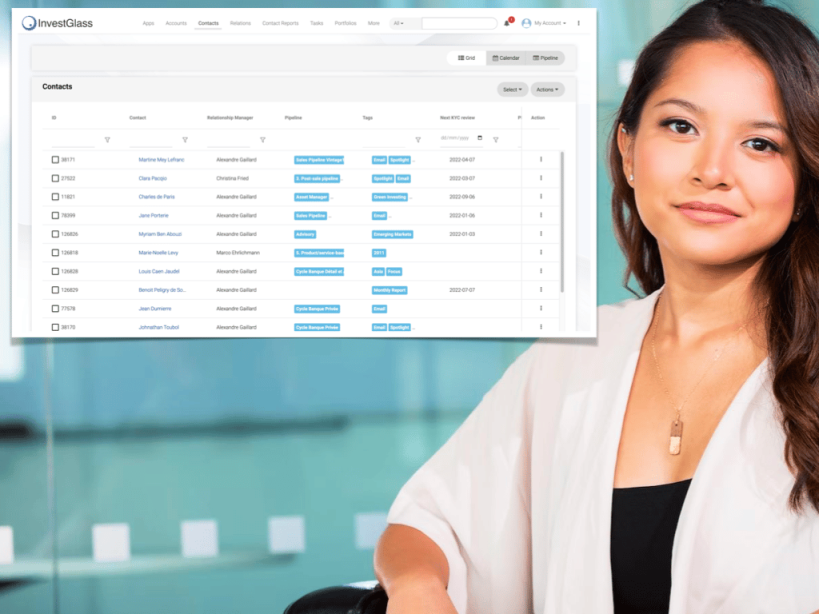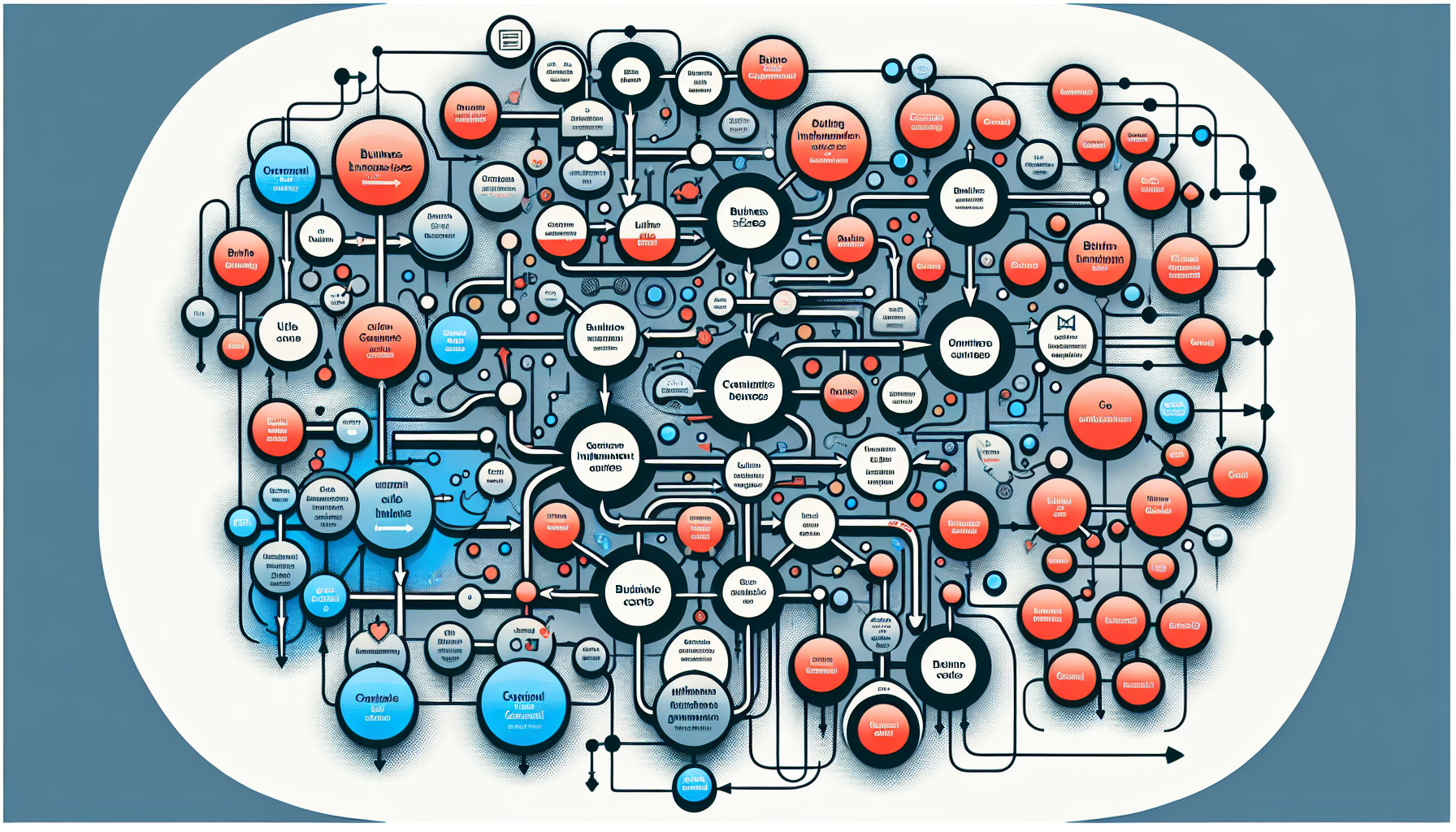Maximizing Your ROI: Understanding CRM Implementation Cost Dynamics

Implementing a CRM system comes with its costs, and you’re right to inquire about them. We cut through the clutter to provide direct answers on crm implementation cost, offering a straightforward cost breakdown, including factors like user count, customization, and additional services. Whether small-scale or enterprise-level, this article has the cost insights you’ve been searching for.
Key Takeaways
- CRM implementation costs are influenced by factors such as business size, CRM complexity and customization needs, with additional services and features contributing to the overall cost.
- Cost components for CRM systems include licensing and subscription fees, setup and configuration expenses, charges for data migration and integration, as well as training and support for staff.
- Hidden costs such as add-ons, custom development, and third-party integrations can unexpectedly increase CRM implementation expenses, requiring careful budgeting and planning.
CRM Implementation Cost Factors

Wouldn’t it be great to predict and control the costs of implementing a CRM system? This is entirely achievable by understanding the key factors that influence these costs. From the size of your business to the level of complexity and customization, each aspect plays a pivotal role in the final CRM implementation cost.
Business Size and User Count
One primary determinant of your CRM implementation costs is your business size and user count. It makes intuitive sense, doesn’t it? Larger enterprises with more users will logically require a more robust CRM system compared to a small business, and this directly impacts the total cost amount. But remember, it’s not just about size; the actual costs depend more on business-specific customization and needs than on size alone.
Complexity and Customization
As your business processes become more complex, the level of customization required in your CRM system increases, which consequently ramps up the CRM cost. But don’t panic! Despite the initial expenses, a well-tailored CRM system with extensive customization can reap substantial benefits in the long run by streamlining operations and enhancing customer satisfaction.
Additional Services and Features
While the allure of an all-in-one CRM system with additional services and features is tempting, caution is advised as these extra features come at a cost. Whether it’s VoIP services or premium add-ons, these additional features can significantly increase your CRM implementation costs. It’s important to consider consulting services to ensure a smooth, CRM setup and implementation process and avoid unnecessary expenses.
Therefore, it’s vital to determine if these features deliver sufficient value to warrant the additional cost.
Breaking Down CRM Implementation Costs

Having covered the factors influencing CRM implementation costs, including salesforce implementation costs, we can now delve into the CRM implementation cost breakdown. Here are the key aspects that contribute to the overall cost:
- Licensing fees
- Setup and configuration
- Data migration
- Staff training
It’s crucial to understand every aspect in order to accurately estimate the overall cost of CRM implementation.
Stay with us as we dissect these costs!
Licensing and Subscription Fees
Just like any software, CRM implement salesforce systems come with licensing and subscription fees, and these fees typically scale with the number of users. Whether you’re a small business paying around $25 per user per month or a large enterprise paying over $300, these fees form a significant part of your CRM implementation costs, including the typical salesforce implementation cost.
Setup and Configuration
Setting up your shiny new CRM system isn’t as simple as flipping a switch. It involves configuring the system to align with your business processes and may even require hiring a CRM configuration consultants. These setup and configuration costs can vary greatly, but remember, a well-configured system is integral to realizing the full potential of your CRM.
Data Migration and Integration
Data migration is a critical step in CRM implementation as it involves moving your valuable customer data into the new system. Add to this data migration fees the cost of integrating the CRM with your existing software platforms, and you have another significant chunk of your implementation costs.
Training and Support
The best CRM system is only as good as the people who use it. Therefore, training your staff to effectively use the CRM platform is vital. This training, along with ongoing support and maintenance, brings additional costs.
However, consider these costs as a valuable investment that will help maximize your CRM benefits.
Hidden Costs in CRM Implementation
Although we’ve covered the main costs in CRM implementation, beware of hidden costs that might surprise you. From add-ons and extensions to custom development and third-party integrations, these hidden costs can quickly add up if not adequately planned for, impacting the final salesforce implementation cost.
Add-ons and Extensions
CRM add-ons and extensions can be a double-edged sword. On the one hand, they offer additional features basic functionality and functionalities that can enhance your CRM’s effectiveness. But on the other hand, they come with an extra cost that can inflate your CRM implementation budget.
Custom Development
Custom development can be necessary when you need to tailor the basic CRM and system to align with your specific business processes. But remember, this customization isn’t free. Depending on the level of customization required, these costs can significantly impact your overall implementation budget.
Third-Party Integrations
Third-party integrations allow your custom CRM or system to communicate and work seamlessly with your existing software platforms. While this can greatly enhance your CRM system’s effectiveness, it can also add substantial costs to your CRM implementation, especially for complex or niche integrations.
Comparing CRM Providers: Cost vs. Value

Choosing a CRM provider isn’t just about the price. Comparing both the cost and the value each provider offers is equally important.
Let’s analyze some popular CRM providers and assess the return on investment with InvestGlass.
Popular CRM Providers
From Salesforce to HubSpot to Zoho CRM, each CRM provider offers different pricing plans and features. However, it’s crucial to look beyond the price tag and evaluate what each provider, including Salesforce CRM, brings to the table in terms of features, scalability, and customer support.
Assessing ROI with InvestGlass
The decision to choose a CRM provider isn’t solely based on cost but also on the value it offers. With InvestGlass, you can analyze the overall cost of the CRM against the perceived value it brings to your business, helping you make an informed decision based on return on investment.
Tips for Reducing CRM Implementation Costs

A CRM system implementation needn’t strain your finances. Through careful planning and strategic decision-making, you can greatly reduce the implementation costs. One way to achieve this is by using a salesforce implementation cost calculator. Let’s explore some tips on how to further minimize expenses.
Selecting the Right CRM Plan
Opting for the appropriate CRM plan is essential for a cost-effective implementation. This involves defining clear objectives, understanding your business’s core needs, and setting a realistic budget.
And remember, involving end-users in the selection process can ensure that the chosen CRM tool supports all aspects of your business and meets diverse needs.
Leveraging Free Resources
Why should you pay for something that you can get for free? A number of CRM providers offer complimentary training materials and tutorials. Utilizing these resources can help reduce your training costs.
Streamlining Implementation Processes with InvestGlass
Streamlining implementation processes can greatly improve efficiency and reduce costs. With a user-friendly CRM like InvestGlass, you can the sales process, diminish the learning time, enhance productivity promptly, and save on costs.
Case Study: Successful CRM Implementation on a Budget
Having discussed the theory, it’s time to examine a real-world example. This case study demonstrates how a business successfully implemented a CRM system on a budget by focusing on essential functionality, careful planning, customer service teams and effective use of resources, making it one of the cost-effective CRM solutions.
The result? Improved customer service, higher sales conversion rates, subscription costs and more efficient operations.
Harnessing the Power of InvestGlass CRM to Streamline Costs and Enhance Efficiency
In the evolving landscape of Customer Relationship Management (CRM) systems, understanding and managing costs has become pivotal. As businesses navigate through the maze of CRM implementation costs, the importance of strategic planning and decision-making cannot be overstressed. With a spotlight on InvestGlass CRM, a Swiss cloud solution renowned for its robust sales automation and compliance platform, we delve into how it stands as a beacon for reducing operational costs while amplifying efficiency and value.
The Financial Spectrum of CRM Implementation
The average CRM implementation cost varies widely, influenced by a multitude of factors including customization needs, the scale of deployment, and the choice between on-premise versus cloud-based solutions. When we consider CRM services, it’s crucial to look beyond the sticker price, examining support costs, customization costs, and the potential for hidden fees that can accumulate over time. Notably, Salesforce CRM pricing often comes into comparison, shedding light on the need for a cost-effective yet powerful alternative.
Key Cost Factors:
- CRM Consultants: Their expertise can be invaluable, yet it adds to the initial outlay.
- Salesforce CRM Pricing vs. InvestGlass: A comparative look reveals the latter as a cost-effective solution without compromising on features.
- Billed Annually: This common billing cycle emphasizes the importance of understanding long-term financial commitments.
Frequently Asked Questions to InvestGlass team
How much does it cost to setup CRM?
Setting up a CRM can cost enterprise businesses anywhere from $7 to $300 per user per month, depending on the size and needs of your business. Factors such as the number of users and the features required will determine the overall cost.
How is CRM cost calculated?
CRM subscription cost is calculated by multiplying the base cost per user, per month with the number of users on your team. Additional costs may depend on the features and data storage needed.
What are the key factors that influence CRM implementation costs?
Key factors that influence the CRM adoption and implementation costs include business size, user count, complexity, customization, and additional services and features. These elements play a significant role in determining the overall expenses of CRM implementation.
How can I compare CRM providers in terms of cost and value?
To compare CRM providers in terms of cost and value, analyze their pricing plans and features, assess the return on investment, and consider customer reviews and experiences. This will help you make an informed decision.
How can I reduce CRM implementation costs?
To reduce the CRM maintenance and implementation costs, choose the right CRM plan, make use of free resources, and streamline implementation processes. This can help in minimizing expenses.